The Difficult Question of Language
Immigrant communities face difficulties as they try to preserve their faith
Qom Moran men qabro! Shariroith qom!
If you are of my husband’s Greek Orthodox tribe, Christos anesti! Alithos anesti!
This post is written on Bright Monday, the Monday following Orthodox Resurrection Sunday, or Pascha, as my Eastern Orthodox friends call it.
My spouse and I spent our extended weekend in Columbia, SC, where I was hooded and graduated with my PhD in Intercultural Studies from Columbia International University.
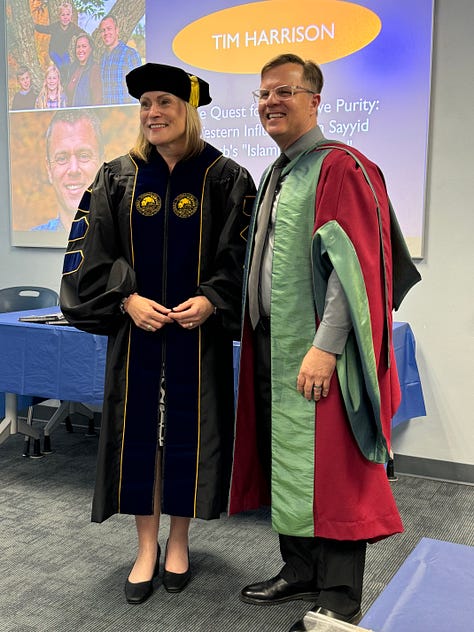
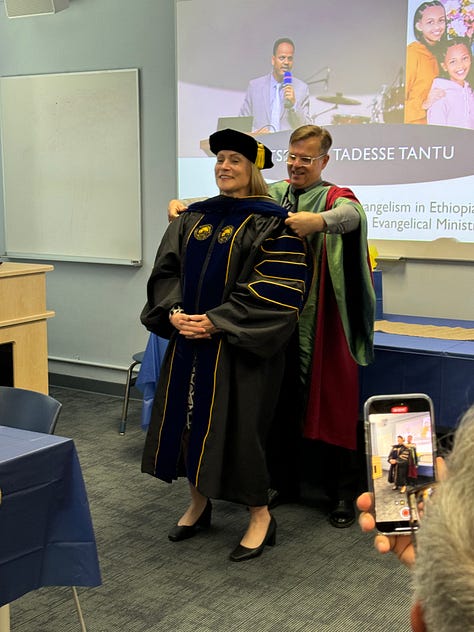
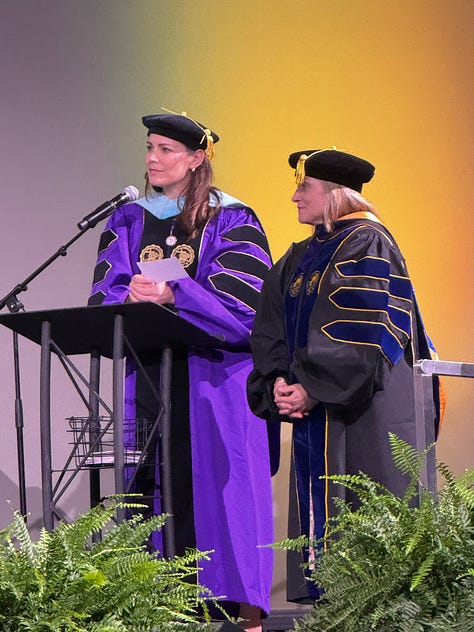
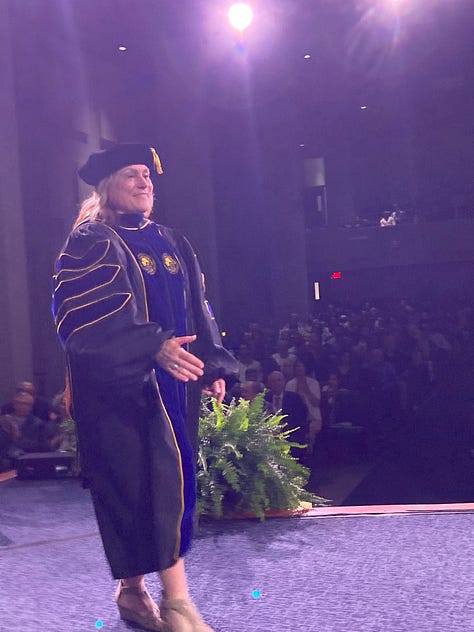
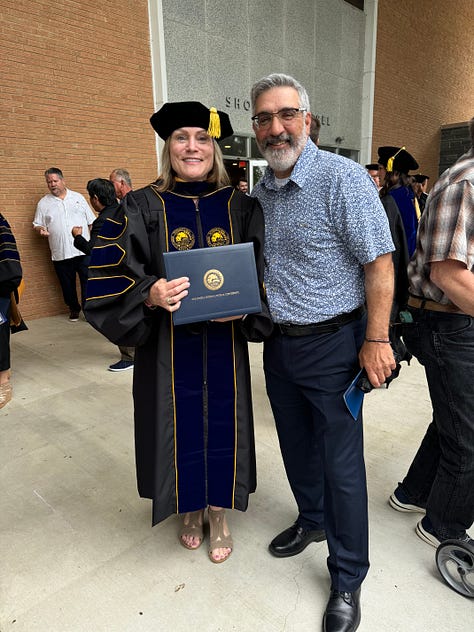
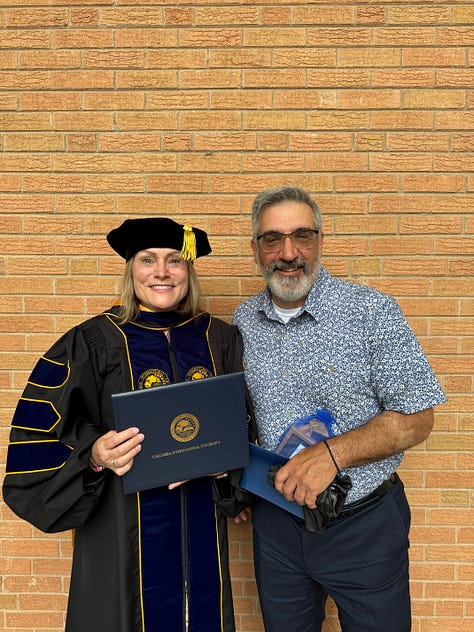
*personal brag off* 🤣
Holy Week concluded while we were in Columbia, and Holy Saturday was upon us. There are no Syriac Orthodox churches in Columbia, but there is a large Greek Orthodox cathedral, Holy Trinity Greek Orthodox Cathedral. We spent Holy Friday and Holy Saturday there to avoid missing this most important time of an Orthodox Christian’s liturgical calendar.
Holy Trinity is a place that will make your chin drop. It is such a beautiful church, and the iconography is simply baffling. Here are some photos to give you an idea.
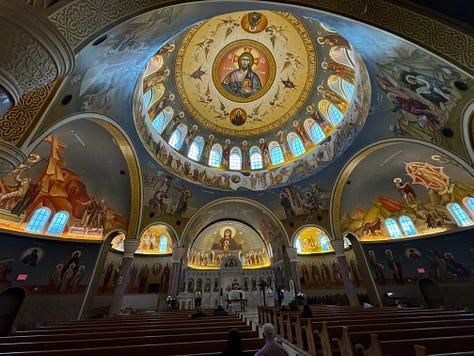
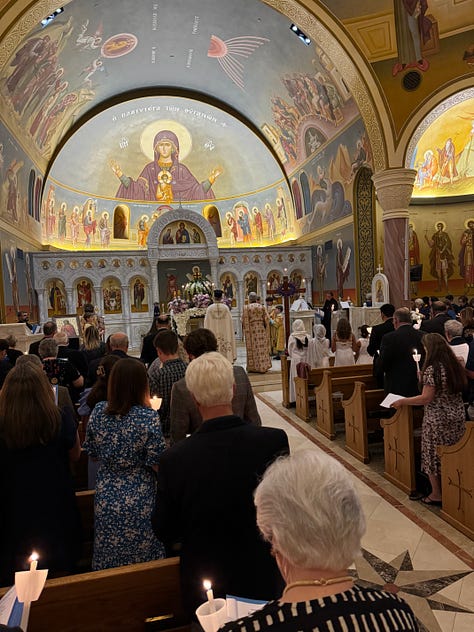
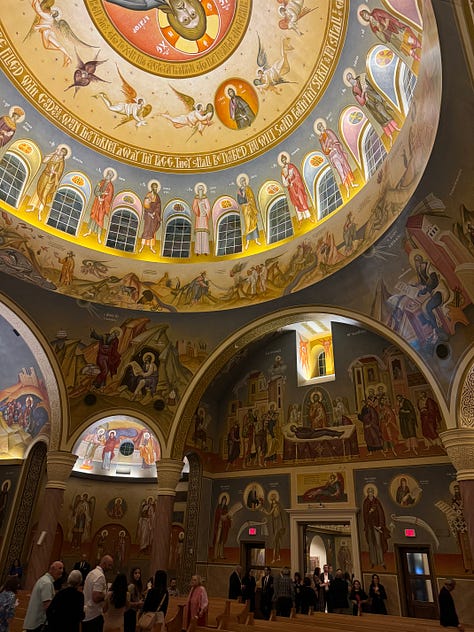
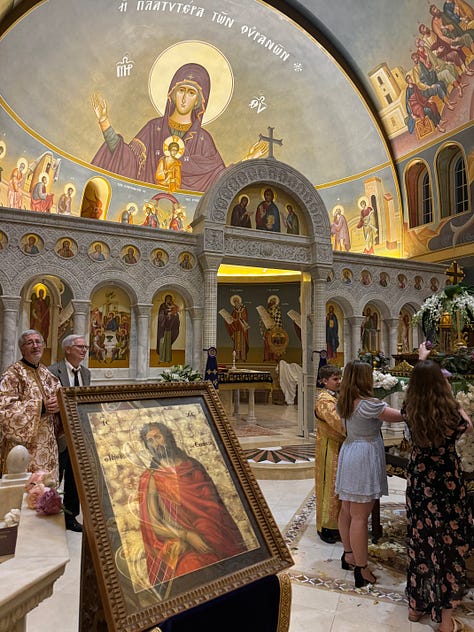
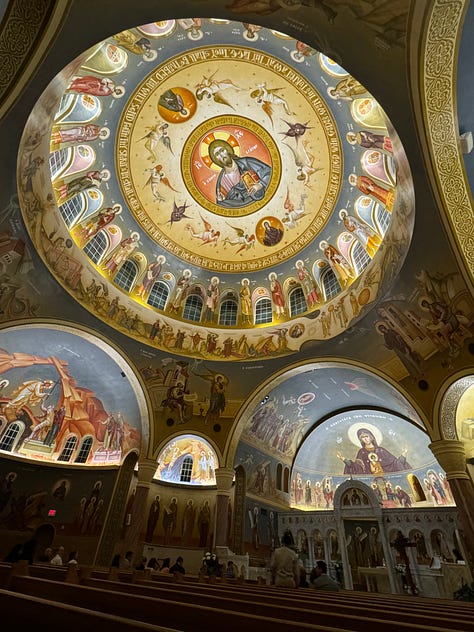
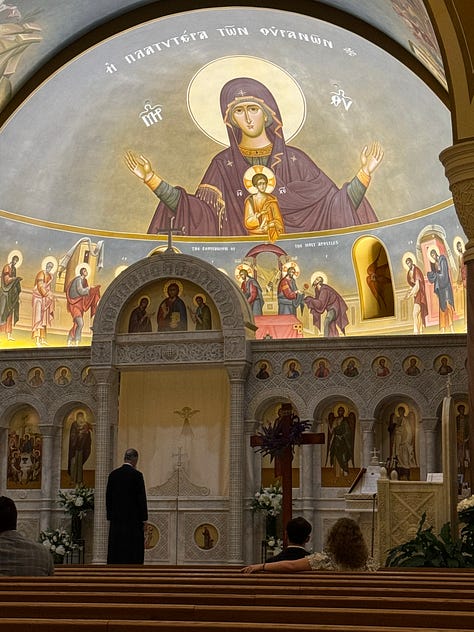
I was excited for my husband, who returned to Greek Orthodoxy only when his wife became Syriac Orthodox. While he grew up Greek Orthodox, he left Orthodoxy behind and followed me into evangelical churches when we married. One key reason was that he, the third-generation grandson of Greek immigrant grandparents, no longer spoke Greek. To him, the Divine Liturgy was inaccessible.
I am happy to report that he has truly embraced Orthodoxy again, which makes me very happy. We worship together on Sundays at the local Greek Orthodox church, and I then drive 1 1/2 hours south to Phoenix to attend my Syriac Orthodox church most Sundays. One key reason he is so very engaged at his church is that the Divine Liturgy, and as a matter of fact, all services are fully in English. I believe there is one line of Greek spoken on a Sunday morning.
My excitement about visiting the beautiful Greek Orthodox cathedral in Columbia didn’t last. I quickly saw my husband’s face sink when he realized half the liturgy was in Greek. Even though I had pulled up the text of the prayers in English on my phone (thank you, GOA Digital Chant Stand app), he had lost interest. Normally, my husband, truly full of joy, sings along loudly and confidently in the responsive prayers of the Divine Liturgy. Here, not only was a dedicated and robed choir taking on this role but very few voices were heard to be singing in the congregation as well. This is completely contrary in our church here in Prescott. In addition, half the singing, of course, was also in Greek! We spoke to a couple after the Matins and Lamentations of Holy Saturday. The wife told us that while she speaks Greek, she’d prefer the services to be completely in English, as her children would benefit, and it was also her personal preference, being that she lives in the United States, not Greece.
The next night was the Pre-Resurrection Service, followed by the Divine Liturgy. The same result. Nick wasn’t having it. He was disconnecting. He was all of a sudden just an onlooker, not a participant. It was at that moment that my dissertation came to life. During the defense, I was asked by one of my readers, the dean of the School of Intercultural Studies, Dr. Ed Smither, why the Syriac Orthodox Church was not shifting to German in their Holy Qurobo. German is now the heart language of the young people in Syriac Orthodox churches in Germany (the same holds true here in the US for English, albeit with a bit of a time lag as immigrants arrived here later than those in Germany). His point was that the Gospel of Jesus Christ needs to be communicated in the heart language of the hearers. At that moment, I defended using Syriac in our liturgy and prayers.
Watching my husband during those two nights of preparing for the resurrection of our Lord drove home to me why this discussion is necessary. My research has shown that the language of origin is consistently lost by the third generation. In my observation in Germany, many of the young people still spoke Turoyo, but it was becoming apparent that their fluency and comprehension were rapidly disappearing. A few weeks ago, the first Bible study was offered in German through the collaboration of four churches around my hometown of Gießen, Germany. As the invitation went out, the organizers expected maybe seventy people. Instead, over two hundred, mostly young people, showed up!
Our youth is hungry for the Word of God and to know Jesus Christ. We need to find rapid answers to the language problem. I am seeing encouraging signs in some churches. From monitors offering transliteration and translation to groups meeting with German agendas and speakers to reels and short videos in German explaining liturgical traditions and biblical concepts, the willingness is beginning to show, especially with some of our young priests who were recently ordained. I am encouraged, yet I am very nervous that the change will be inconsistent. Yes, Syriac deserves to be protected. I am all for that! At the same token, the hard question needs to be answered: is it more important to proclaim the Gospel of Christ in a language understood by the hearers or to preserve a language for the sake of the language? It’s imperative we find answers to both. I welcome your thoughts.




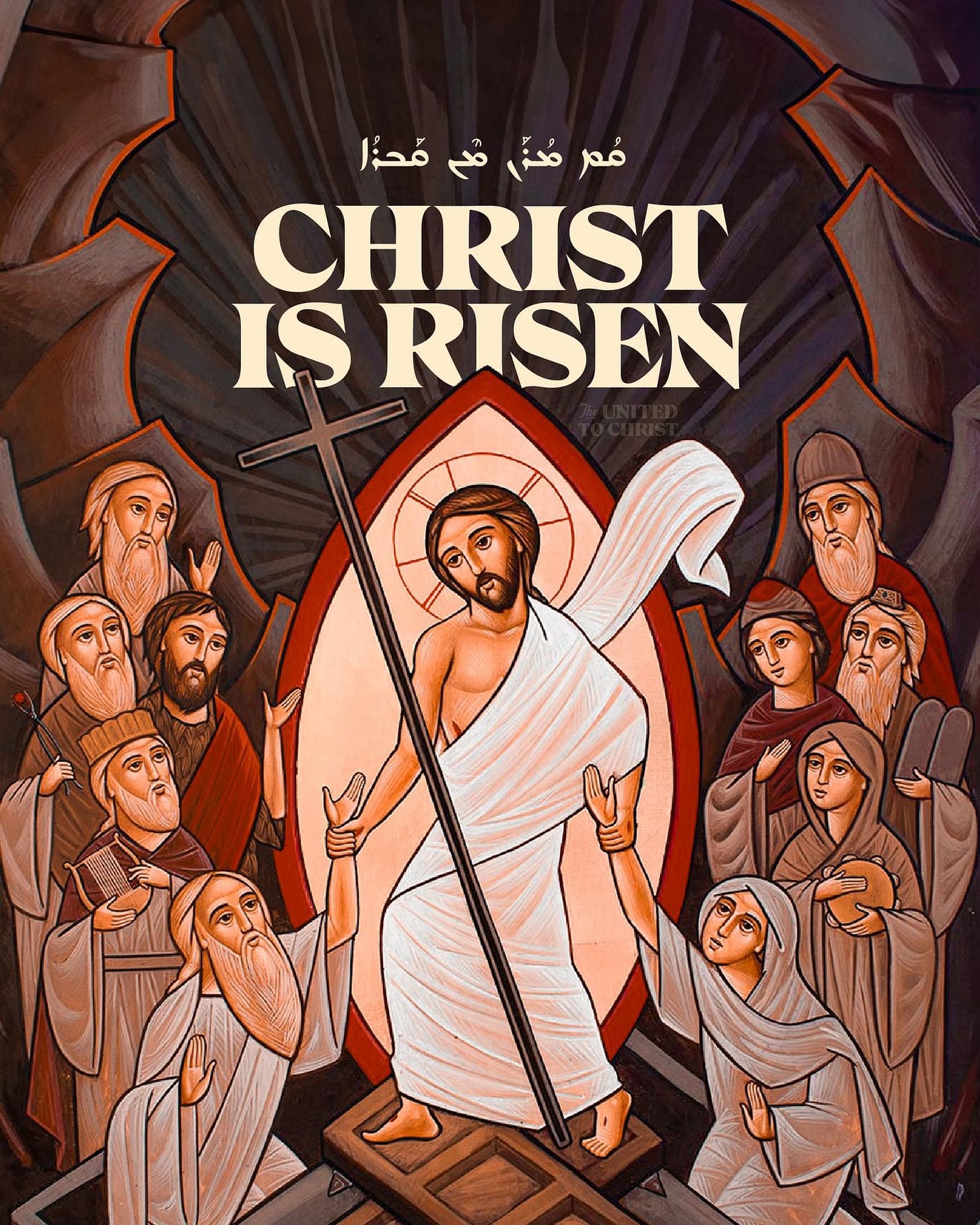
George Kiraz has a good book about the Syriac Orthodox church in US and how it started
I understand and speak some Syriac, but find it difficult to follow the liturgy completely. I don’t see the point of insisting on using Syriac in the liturgy, while most of young people don’t understand the language. Of course Syriac is important and we should work hard to preserve it inside and outside the church, but the christian faith in our churches should have the at most priority.
Sometimes I can’t help feeling that there is a barrier, because many people don’t fluently speak/understand the language. I wish our church would be more inclusive and more open to people from different backgrounds.